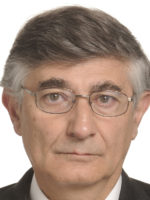
Italian nationality, studied Law at Florence University, Italy, and a Master at European Centre in Nancy, France. Began my career (1977) as advisors on European affairs to a major Farmers organization (Confagricoltura), Rome, Italy and later (1978) as advisor to the Association of Industry, in the textile region, Prato, Italy. Started working for the European Parliament (1981) as researcher in the Agriculture Department, then to the secretariat of the Committee on Budgets (1989), as senior administrator. Remained in the budget sector, as Advisor to the Director-General, head of the secretariat of the Budget committee and Director for Budgetary Affairs. In 2008 was appointed Director of the EP Library, Archive and Transparency until end 2015, when I retired. Appointed European Parliament Fellow at the Robert Schuman Centre, EUI, in October 2014, with the specific task to build up links with the EP Research Service and the EUI. In particular conducted a research on the budgetary powers of the European Parliament. Since 2004 have given courses on European Public Finances at European College of Parma, Italy. In January 2015, was appointed visiting Fellow at the Robert Schuman Centre for Advanced Studies, European University Institute, Florence to continue research in the European budgetary affairs. In 2016, gave course at LUISS University Rome, for a Master course (EUPADRA). Speaker at numerous seminars, conferences, workshops in Europe.